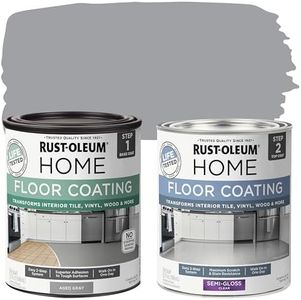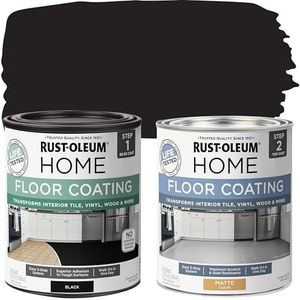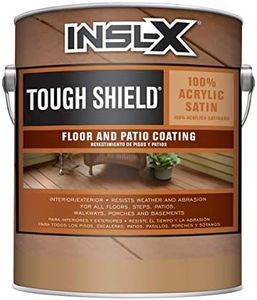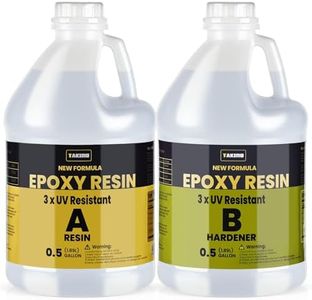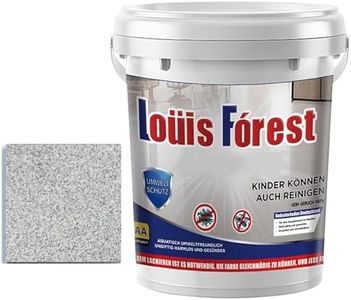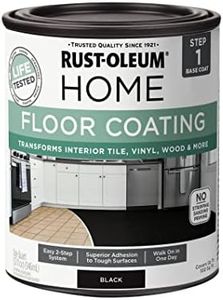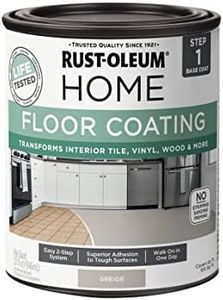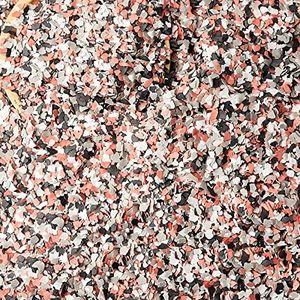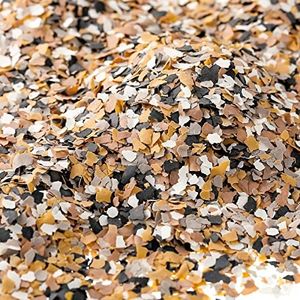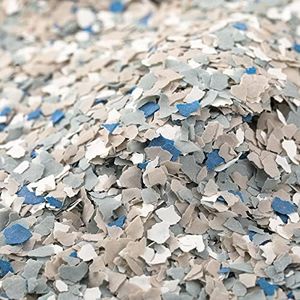We Use CookiesWe use cookies to enhance the security, performance,
functionality and for analytical and promotional activities. By continuing to browse this site you
are agreeing to our privacy policy
10 Best Garage Floor Coating
From leading brands and best sellers available on the web.By clicking on a link to a third party's website, log data is shared with that third party.
Buying Guide for the Best Garage Floor Coating
Choosing the right garage floor coating can make a big difference in how your garage looks, how easy it is to clean, and how well it stands up to the tough conditions like cars driving in and out, oil spills, and temperature changes. Instead of picking simply based on color or brand, it's important to look at the main features that determine how well the coating will perform and how much effort it takes to apply and maintain. By understanding the key specifications, you can select a coating that matches how you use your garage and how much time you want to spend on upkeep.Type of CoatingThis refers to what kind of material the floor coating is made from, such as epoxy, polyurethane, acrylic, or latex. The type is important because it affects durability, resistance to chemicals, drying time, and the look of the finish. For example, epoxy is well known for being strong and resistant to stains, while latex and acrylic options are easier to apply but not as tough. Polyurethane coatings are flexible and resist impacts well. Choosing the right one mainly depends on how you use your garage—if you want maximum toughness and don't mind a more complicated application, epoxy may fit best, but if you just want a quick improvement and light-duty protection, latex or acrylic could work.
Thickness and LayersThickness is how much coating is actually put on your floor and is often measured in millimeters or as recommended coats (single-layer, double-layer, etc.). Thicker coatings protect better from impacts, stains, and moisture, but they may take longer to apply and dry. Most light-duty uses are fine with a single, thinner coat, but for workshops or garages where cars are stored and heavy tools are used, a multi-layer, thicker application is usually wise. Your personal use—whether you just park your car or run a full workshop—should decide how thick a coating you need.
Slip ResistanceSlip resistance means how well the floor prevents you from slipping, especially when wet. This is an important safety feature, especially if you live in a place where you track in water, snow, or if you wash your car inside the garage. Some coatings mix in grit or textured materials to add better grip. If you expect the floor to get wet or want to reduce the risk of falls, choosing a coating with a slip-resistant finish is a smart move. For dry, light-use garages, smoother finishes are fine.
Chemical and Stain ResistanceThis measures how well the coating protects against oil, gasoline, cleaners, and other chemicals commonly found in garages. Stronger resistance means less staining and less chance of damage if you spill something on the floor. If you’re likely to work on cars or use chemicals, pick a coating rated for good chemical resistance; otherwise, a basic stain resistance is usually enough for simple storage or parking.
UV StabilityUV stability describes how well the coating stands up to sunlight without fading or turning yellow over time. This is especially important for garages with windows, skylights, or doors that let in lots of light. If your garage is bright or often open, make sure to pick a coating labeled as UV stable. In shaded, closed garages, this is less important.
Ease of ApplicationEase of application is about how simple or complicated it is to put the coating on your garage floor. Some coatings need lots of floor prep and take days to cure, while others are ready in a few hours with little prep work. If you’re doing it yourself and want something simple, look for coatings that are described as easy to apply and quick drying. If you don’t mind more work for a better, longer-lasting finish, then more complex systems might pay off.
Finish and Color OptionsThis refers to how the coating will look once it’s on your floor, including color choices and whether it’s glossy or matte. This matters for the overall appearance of your garage and how well it hides dirt or tire marks. If you want a showroom look, choose a high-gloss finish; if you want to hide dust and scuffs, a matte or speckled option is more practical. Think about your cleaning habits and personal style before deciding.
